READY TO GET STARTED?
REQUEST A FREE ESTIMATE
Fill out the form below or call (888) 466-7849 for a free, no-obligation estimate.
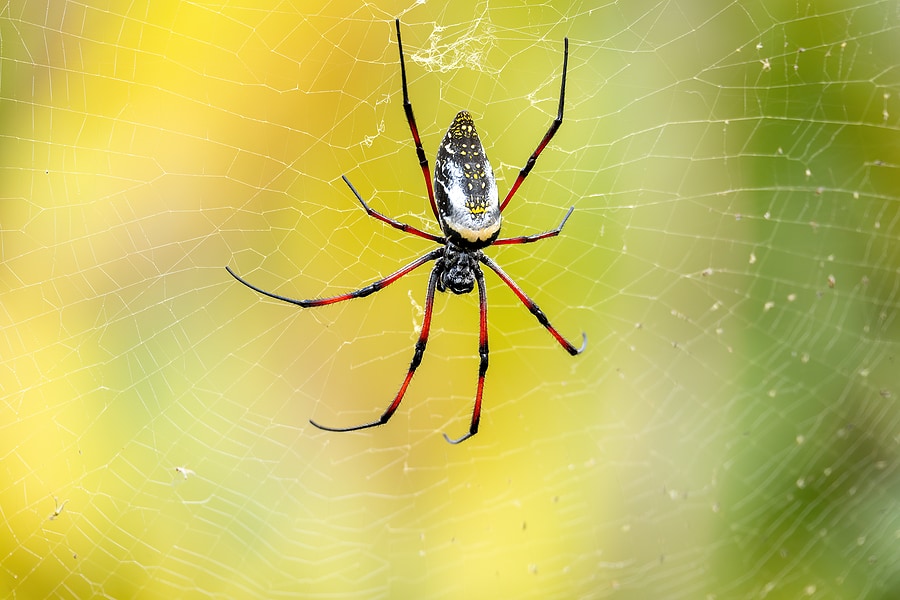
As the fall season settles in, many homeowners in Georgia are gearing up for the seasonal battle against fall pests. Among the various critters that make their way into our homes and gardens, orb weaver spiders are a common sight. While these eight-legged arachnids may appear intimidating, understanding their characteristics and behaviors is essential to maintaining a pest-free environment.
Orb weavers belong to the Araneidae family and are known for their distinctive circular webs, which they expertly spin to trap flying insects. These spiders come in various colors, shapes, and sizes, but they all share some common features:
Orb weaver spiders are outdoor creatures, and you’ll most commonly encounter them in the following places:
Before rushing to eliminate orb weaver spiders from your property, it’s essential to consider both the advantages and disadvantages they bring.
If you wish to minimize orb weaver spider presence around your home, here are some practical tips:
Don’t let orb weaver spiders and other fall pests disrupt your peace of mind this season. Take proactive steps to manage and prevent their presence by reaching out to our expert pest control team. Request a free pest control quote today and ensure a pest-free environment for you and your family.
In conclusion, while orb weaver spiders can be beneficial for natural pest control, they may also pose challenges for homeowners. Balancing their advantages and disadvantages and taking preventative measures can help you enjoy a pest-free home during the fall season.
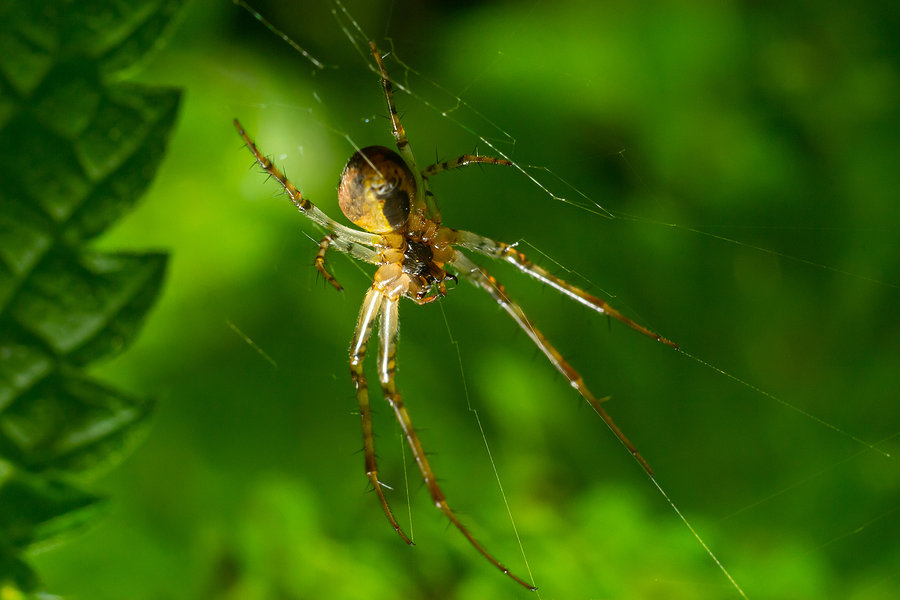
The thought of spiders in your home is enough to make anyone feel a little unsettled, but these household pests are actually beneficial to have around. They are a natural form of pest control, keeping other pest populations like mosquitoes and flies under control in and around your home. Although there are a few venomous spiders found in our area, most others are harmless and don’t pose a threat to you or your family. While it’s not realistic to expect to eliminate every spider from your home, you can make it less inviting for them to help keep them out without the use of harsh chemicals or pesticides. Here are 7 natural spider control remedies you can use around your home.
There are several plants you can place inside and outside your home to naturally deter spiders from coming around. Lavender, mint, eucalyptus, and citronella are known to deter spiders from building their webs near them. If incorporating these plants into your landscaping isn’t a possibility, you can also spray essential oils with these scents, in addition to peppermint or tea tree oil, anywhere spiders are a problem. You can also crush mint and place it in sachets inside your cabinets or other areas where spider activity is high.
Spiders are masters of hide and seek. They can be found hiding in cracks, crevices, cabinets, knotholes, behind baseboards, inside seldom used items in your home (such as shoes), under rocks, in woodpiles, and under piles of leaves and dirt. By getting rid of these hiding places you can encourage spiders to seek shelter somewhere besides in your home. Move leaves, grass clippings, compost and woodpiles away from your exterior walls. Dust and declutter your home on a regular basis. Frequently dust any areas where cobwebs appear. Organize your storage areas and get rid of any empty boxes.
Spiders spin webs to trap their prey as a food source. If you come across spider webs either inside or around your home, remove them as soon as possible. Eventually the spiders will move on and build their webs somewhere else.
While spiders aren’t attracted to your outdoor lights, other pests that they feed on are. Mosquitoes, flies, gnats, and other common prey for spiders are drawn to your outdoor lights, providing a literal buffet for a waiting spider. Keep your outdoor lights off as much as possible to help cut down on your outdoor pest populations.
Diatomaceous earth is a crumbly material made of the fossilized remains of an algae called diatom. DE can be sprinkled on the ground around your home and used as an insecticide. DE kills several pests in addition to spiders and can be used around your family and your pets.
There are some organic substances that work as natural repellents for spiders. Vinegar is a common one. The acetic acid in vinegar gives a sour taste and odor to spiders who come into contact with it. Mix equal portions of vinegar and water in a spray bottle and spray it around your home, especially in areas where pests may be getting inside. Citrus is also a natural spider deterrent. Keep citrus fruits in a bowl on your kitchen counter and use the leftover peels to rub onto your windowsills and doors to help keep spiders out.
Spiders can get in through the tiniest cracks and crevices in your home. Make sure to regularly inspect the exterior of your home and seal any places where pests might be gaining entry inside. Be sure to check doors and windowsills and use caulk or weatherstripping to seal any cracks and openings.
While most spiders don’t cause any problems in your home, they can become a nuisance, especially in your yard or garden. Webs can be built in inconvenient places; they can cover your plants or hide blooms, stunting their growth. If you have a problem with spiders or need some help getting them under control, contact your local pest control company for an evaluation.
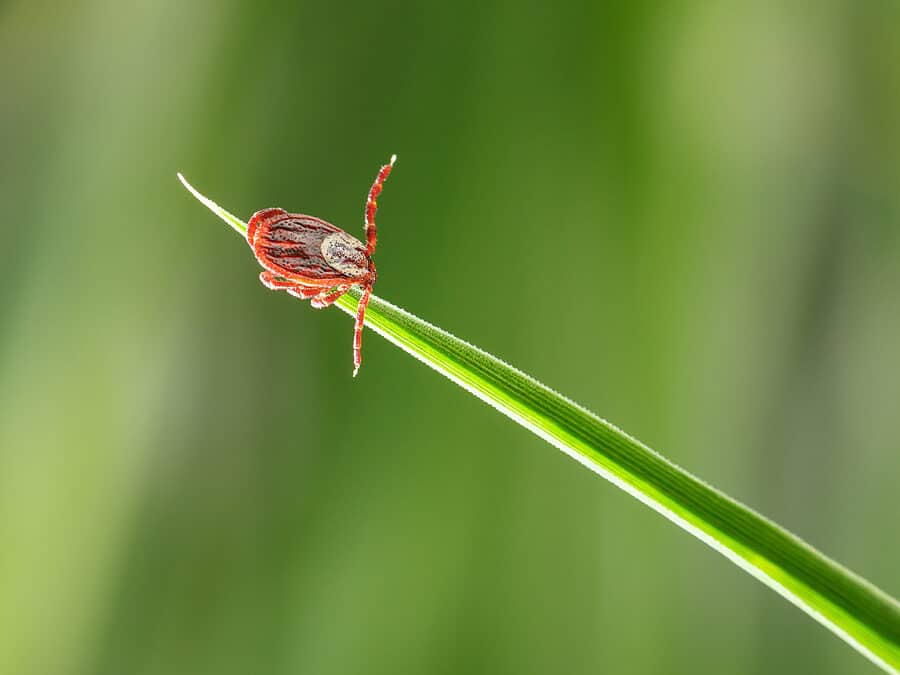
While most people associate summer with warmer weather and more time spent outdoors, it also marks peak season for many Georgia pests. Here are 5 of the most common summer pests in Georgia and how to prevent them.
Mosquito season peaks in summer (peak months are June to September) with activity at hits highest. Mosquitoes are most active at dawn and dusk. These pests transmit serious diseases to both humans and pets. They also breed in standing water found around your home. You can get rid of mosquitoes this summer by:
Ticks are active from late spring to early fall. These summer pests are known to transmit serious disease to humans and pets. They are commonly found wooded areas and areas with tall grass. Avoid ticks this summer by:
Spiders are common in summer as they are often driven from their hiding places by the warmer temperatures (e.g. your attic). While spiders are beneficial to have around as they eat other common pests found in your home, they can be a nuisance. Keep spiders at bay this summer by:
Ants emerge in the summer in search of food (particularly sweets and grease) that they take back to their colonies. This is why they are often found in kitchens. You can prevent ants by:
Stinging pests, such as wasps, hornets, bees, and yellow jackets, are prominent in the summer months. These pests will often forage for food during the warmer weather. Avoid stinging pests by:
Don’t let summer pests ruin your time outdoors. Contact your local pest control company today for a free evaluation.
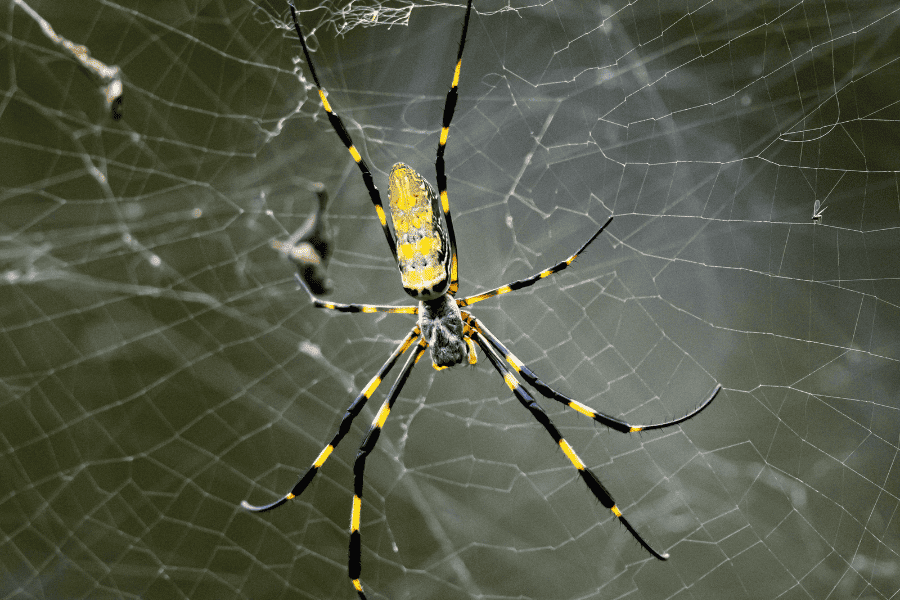
Summer is a season that brings with it many joys, such as longer days and warmer weather. Unfortunately, it also brings a variety of pests that can invade your home and make life unpleasant. Let’s discover some common summer pests and share tips for preventing them.
Ants are one of the most common pests found in homes during the summer months. They are attracted to sweet, sticky substances and can quickly become a nuisance if they find a food source in your home.
Mosquitoes are another common summer pest that can be a serious health concern. They can carry diseases such as West Nile virus and Zika virus, so it’s important to take steps to prevent them.
Ticks are small, blood-sucking pests that can transmit diseases such as Lyme disease and Rocky Mountain spotted fever. They are often found in wooded areas but can also be found in your yard if you have tall grass or brush.
Bees and wasps are important pollinators, but they can also be a nuisance and a health concern.
To prevent bees and wasps, keep your trash cans sealed and dispose of food scraps properly. If you have a nest on your property, call a professional to remove it rather than attempting to do it yourself.
Spiders are often found in dark, damp places like basements and crawl spaces. They can be beneficial by eating other pests, but some species can be dangerous if they bite.
If you have a pest problem that you can’t control on your own, contact your local professional pest control company for a customized summer pest prevention plan!
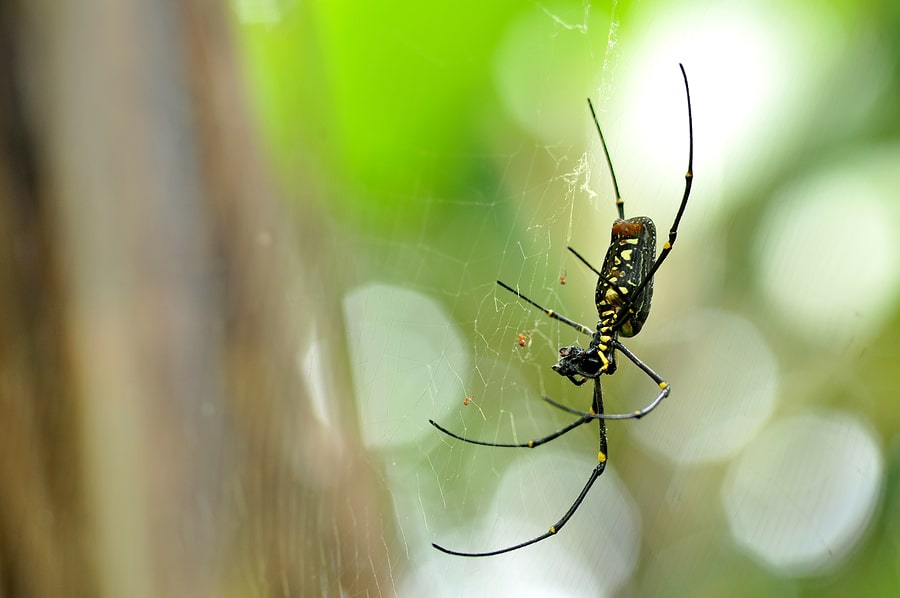
Orb weavers are a broad family of spiders found throughout the United States and Canada. The orb weaver is known for the large, majestic web it weaves. These webs are commonly found on tree branches, in tall grass, bushes, and around light fixtures. They are often found where abundant food sources are available (in your yard or garden, near lights that are on at night, etc.).
Most orb weavers appear in the spring when their eggs hatch, but they aren’t really noticed until late summer and fall (when the males go out in search of their mates). Female orb weavers hang out in their webs, eating and waiting on a male to come find them. Males are always on the move, rarely building webs, searching for a partner. At the end of fall, females will lay their eggs and then die during the first frost. Males typically die after mating. Because of their structure, orb weaver eggs can survive the cold weather of winter. When the weather warms up in the spring, the eggs hatch, releasing a new brood of orb weaver babies.
These spiders are known to be docile and non-aggressive. They rarely bite and aren’t considered dangerous to humans or pets. In fact, they can be beneficial to have around as they trap and eat other pests that can infest your home.
Prevention is unnecessary with orb weavers unless their web is built in an inconvenient location or a location with high human traffic. They cause no structural damage. You can lessen your chances of encountering orb weavers by:
If you have a problem with orb weavers or any other pests, contact your local pest control company.
Common Winter Wildlife to Lookout For
How To Identify A Water Moccasin
Keep Ants Out of Your Home this Spring